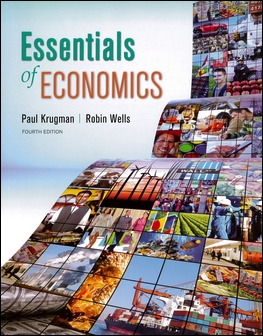書籍分類

Essentials of Economics 4/e
作者:Paul Krugman, Robin Wells
原價:NT$ 1,750
內容介紹 目錄 作者介紹
- Description
-
Compelling Real World Stories and Examples
Essentials of Economics is built around narratives and stories, many of them pulled from real life. In every chapter real-world examples are used to teach core concepts and motivate student learning. -
Global Focus
Essentials of Economics is unrivaled in its worldwide perspective, which is deeply integrated into the narrative, and featured in many of the applications, cases, and stories, as well as in the data-based Global Comparison boxed features. -
Integrated Technology
Developed simultaneously chapter by chapter and designed for seamless integration with the book, LaunchPad for Essentials of Economics gives students access to an extensive collection of proven learning tools, developed to correspond with specific text content: adaptive quizzing, tutorials, videos, activities, and a comprehensive review of math and graphing. The goals for these resources are the same as for the text itself: better engagement, better understanding, and better grades.
Microeconomics to Macroeconomics from the author who has written about economics for more non-economists than anyone else in the world.
Written for the one-semester survey of economics course, Paul Krugman and Robin Wells' Essentials of Economics reflects the authors’ strong belief that economics students learn best from a resource that offers:
分類位置:
商管 > 經濟 > 經濟學


